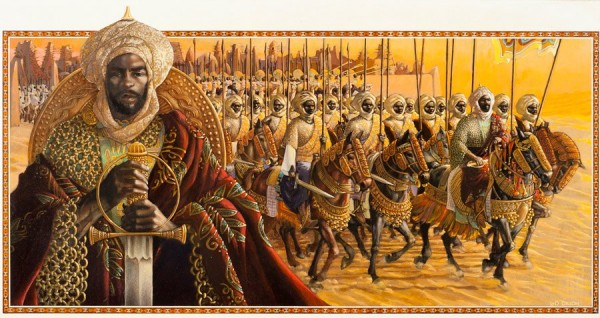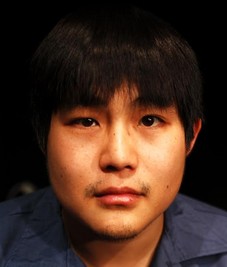This month we feature the epic thirteenth-century Mandingo warrior, Sundiata.
The hero of the national epic of Mali and a cultural hero of the Mandigo people in West Africa, Sundiata was born in Mali in the late 12th century, back when Mali was just a small city-state on the fringes of the once-powerful Ghana Empire in West Africa. His father was the King of Mali, and Sundiata was the youngest of twelve sons. His mother however, was not the Queen (who was the biological mother of the eleven other sons and was rumored to be the most beautiful woman in all of 12th-century Africa), but a concubine known as “Kediougou,” which simply translated means, "very unattractive " and whom was rumored to be a hunchback.
Sundiata’s birth was foretold by prophesy, and he would go from being the once crippled youngest son of the ugliest girl in Africa, to a hardcore Charles Bronson type on a vengance quest to save his entire civilization from the ruinous choke hold of a diabolical evil sorcerer-king so unstoppable that his epithet was literally “The Invincible.”
Known as “The Lion King” for his heroism, bravery, and sense of justice, Sundiata took the title Mansa, meaning “King of Kings.” He built a new capital for his people, constructed mosques, opened his borders to Muslim traders from North Africa (an act that put Mali on world maps from as far away as Europe), opened up gold mines, maintained West Africa’s first standing army, and continued expanding an empire that would last for the next two centuries. At the height of his power, the Mali Empire would sprawl across about 435,000 square miles of territory – twice the size of France.
Not a bad legacy if you ask me...


 RSS Feed
RSS Feed